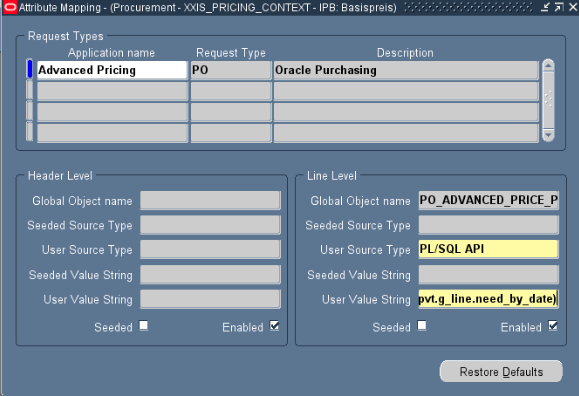Hello,
we created a custom pricing context with a custom pricing function.

The user value string in this case looks like this:
xxis_ipb_pricing_pkg.get_price('PO', null, po_advanced_price_pvt.g_line.order_line_id, po_advanced_price_pvt.g_line.item_id, po_advanced_price_pvt.g_line.need_by_date)
In this function we try to read custom attributes from the PO line during requisition import and release creation, however, even though we receive a valid order_line_id through the global record in po_advanced_price_pvt we are unable to access our flex field attributes because the order does not exist at this point. Running a select like the following will result in a no_data_found error.
select *
from po_lines_all
where po_line_id = p_order_line_id;
Is it possible to access the custom attributes at this point at all? The record type defined in po_advanced_price_pvt only holds a subset of all columns from po_lines_all.
Thank you for your help!